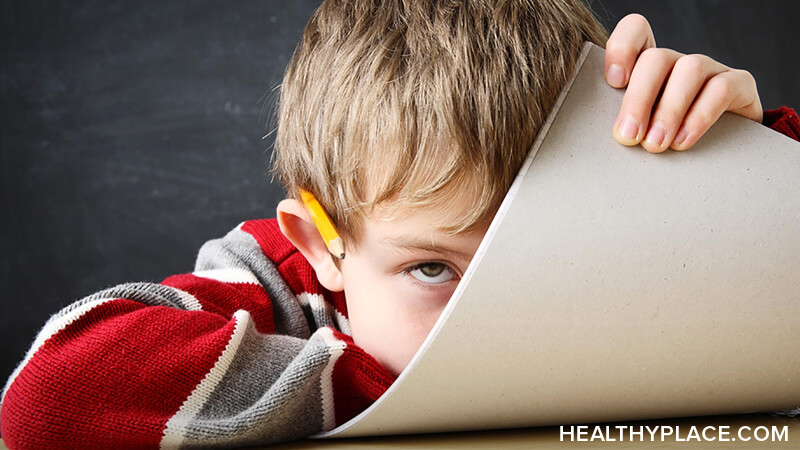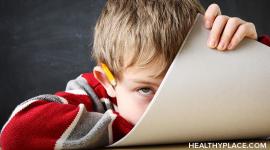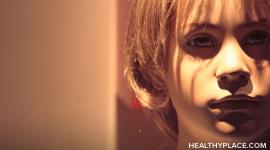Does My Child Have Bipolar or ADHD? How to Tell the Difference
 Attention-deficit/hyperactivity disorder (ADHD) and bipolar disorder can look similar in children and so it can be hard to know if your child has ADHD or bipolar disorder (also known as pediatric bipolar disorder or early-onset bipolar disorder). On top of that, many children actually have both disorders and that can complicate matters further. Additionally, disorders such as disruptive mood dysregulation disorder (DMDD) and conduct disorder can also be hard to differentiate from pediatric bipolar disorder. The following outlines child bipolar vs. ADHD symptoms.
Attention-deficit/hyperactivity disorder (ADHD) and bipolar disorder can look similar in children and so it can be hard to know if your child has ADHD or bipolar disorder (also known as pediatric bipolar disorder or early-onset bipolar disorder). On top of that, many children actually have both disorders and that can complicate matters further. Additionally, disorders such as disruptive mood dysregulation disorder (DMDD) and conduct disorder can also be hard to differentiate from pediatric bipolar disorder. The following outlines child bipolar vs. ADHD symptoms.
Child Bipolar vs. ADHD Characteristic Diagnostic Behaviors
The following table outlines the characteristics that help diagnose bipolar disorder or ADHD in a child and how they present themselves.
| Behavior | Bipolar Disorder | ADHD |
| Self-esteem | Inflated | Inflated or deflated |
| Pleasure | Euphoric in mania/hypomania and suffering and depressed during depression | Often depressed or in neither an inflated mood nor a depressed mood |
| Attention | Distractible | Distractible |
| Hyperactivity | Goal-directed | Unproductive |
| Sleep | Episodic disturbances – such as decreased need in mania/hypomania | Chronic poor sleep; often late bedtimes |
| Speech | Pressured and/or rapid in mania/hypomania and slowed during depression | Often rapid; may be pressured |
| Impulsivity | Externally driven/reactive | Internally driven |
| Social skills | Often good | Often poor |
| Academic performance | Often good | Often poor |
| Psychomotor (movement and mental activity) activity | Agitated in mania/hypomania/mixed states; slowed in depressed states | Chronically agitated |
It’s also important to know that children who are initially diagnosed with ADHD may eventually be diagnosed with bipolar disorder. Children with severe ADHD, unstable emotions and aggression are often the ones who later develop bipolar disorder.
Bipolar disorder and ADHD also commonly occur together. Some studies have shown that in children with bipolar symptoms, as many as 90% also have ADHD. That percentage drops as age increases.
Child Bipolar vs ADHD: The Most Important Thing to Consider
The above shows the differences and similarities between pediatric bipolar disorder and ADHD. The most important thing to note is that when a child has bipolar disorder, behaviors and moods are episodic and behaviors are driven by mood versus in ADHD where behaviors are most consistent.
What to Do If You Think Your Child Has ADHD or Bipolar Disorder
Whether your child has ADHD or bipolar disorder, it’s critical to know that either, or both, disorders can be treated and children do much better with treatment than without.
Finally, it’s important not to diagnose your child on your own. Only a qualified mental healthcare professional like a psychiatrist can diagnose a child. When looking for a psychiatrist, it’s ideal to find someone who specializes in childhood mental illness as he or she can likely diagnose accurately and help the most.
APA Reference
Tracy, N.
(2021, December 28). Does My Child Have Bipolar or ADHD? How to Tell the Difference, HealthyPlace. Retrieved
on 2025, December 8 from https://www.healthyplace.com/bipolar-disorder/bipolar-children/does-my-child-have-bipolar-or-adhd-how-to-tell-the-difference



